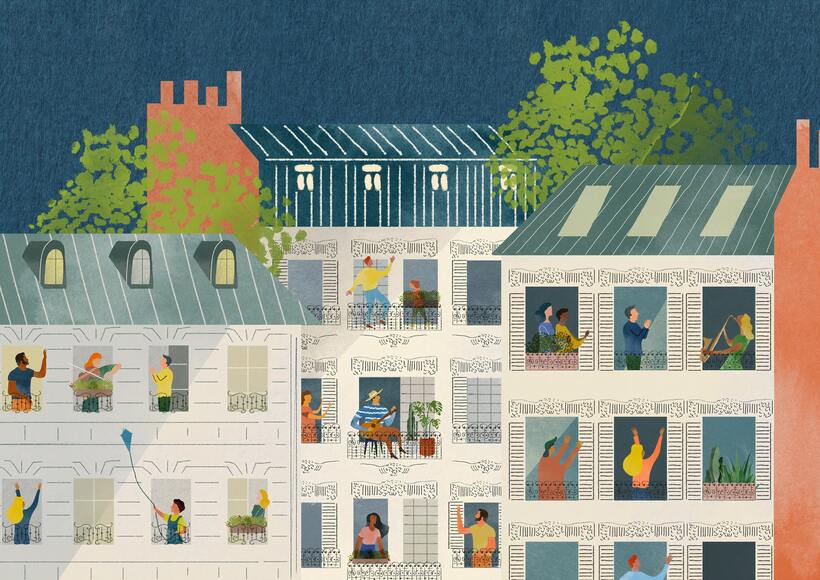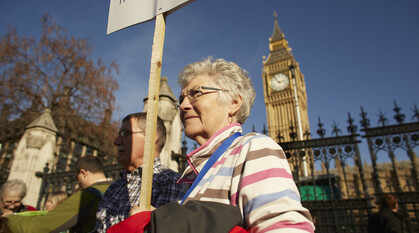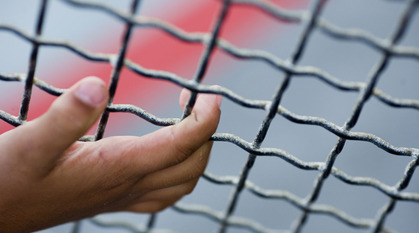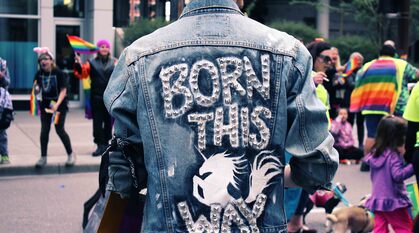Connection, belonging and meaning in lockdown
Alistair Fuller reflects on community and finding a shared purpose.

Reflecting on this past twelve months, none of us can claim that people of faith or faith communities have done more or differently than anyone else. All of us, of every faith and none, have longed for connection.
We've joined with others and served our neighbours and our communities. We've lost loved ones. We've grieved for our own lost hopes. We've fretted and wept through the long night, and struggled to find the will to get up in the morning and begin the new day. We've held in our grief like a caught breath, waiting to weep. The spaces between us feel filled with ghosts and memories and things lost.
I don't think I've handled this time brilliantly at all. I've sometimes found it unbearably difficult. I've sometimes been unbearably difficult. I've found hope a terribly elusive quality and I've so often let small niggles become great worries and burdens. I have failed to learn a language, write a novel or run 10k. Mostly, I've just got through.
So what difference has my Quaker faith – and my Quaker community – made to me? How has it helped? Where did I find hope and meaning and belonging in this endless, troubled, difficult time?
Finding community
Week by week my Quaker community has granted me a broad and intimate space to be silent and still in worship. A moment to breathe easy. A sense that I am held by something greater than the sum of all of us. That things lost are only out of sight; that life is for and means something.
It has given me an opportunity to walk alongside other parents and families, whose children and young people are navigating with grace and courage and resilience and a kind of bruised, determined stoicism, waters far stormier and more unpredictable than I ever had to brave at their age.
Like many Quakers, I belong to more than one community. As well as the kind and lovely Friends in my own local meeting, I join each week with people from around the world – everywhere from Japan, Russia and India to southern Spain and the USA – at Woodbrooke's meeting for worship, for half an hour of stillness, waiting, listening and profound connection.
My colleagues at work, too, are my Quaker community. We meet together, we are still, we listen, talk, laugh, occasionally cry, share stories, spark ideas. Sometimes we make each other cross, often we make each other feel better and always we are looking for ways to build and shore up this corner of the Kingdom of Heaven.
In all these communities, I am held close and held to task; treasured and challenged. I am allowed to be my worst self and encouraged to become my best self. The best is believed of me and, sometimes, I even begin to believe it of myself.
A shared purpose
For me, community is about living out a shared story with a shared purpose, and my Quaker communities have allowed me to be a part of their story and to find my own story within it. It is a story of struggle and failing, of joy and delight, of forgiveness and of endless possibility.
I find meaning and purpose in the story of Jesus and his people. Not just Jesus the teacher and not particularly Jesus the miracle-worker, but Jesus the friend, the companion, the storyteller. Jesus who sits alongside the unlovely, the unworthy, the lonely and the bruised. The Jesus who calls his friends to do the same. It is a story that that grants me a way of shaping my intentions and actions, and also a sense of being part of a community that stands beyond time, place and circumstance. A community that lives deeply in both the here and now and in the eternal moment.
Moments of hope and joy
But in the end what has given me a continual sense of hope, and has managed to keep joy always somewhere in my peripheral vision throughout this time, has been the small, thoughtful, attentive gifts of kindness that I have both witnessed and received. Those moments where we have paid attention, made space, sat still together, waited alongside each other, checked in, called round, joined in and just taken the time to ask, 'Are you doing okay?'
It is what the writer Frank Cottrell-Boyce describes as the "stern, joyful discipline of noticing other people". We do it in worship, we do it in service, we do it quietly, we do it unnoticed. And when we do it, we brush up against what is most precious and most divine in each of us. It is where we meet something of God in each other.


